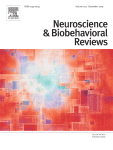#gutbrainepilepsyproject
New UCLA study:
"The Gut Microbiota Mediates the Anti-Seizure Effects of the Ketogenic Diet"
Published: May 24, 2018
•Changes in the gut microbiota are required for the anti-seizure effects of the KD
•Specific KD-associated bacteria mediate and confer the anti-seizure effects of the KD
•KD microbiota regulate amino acid γ-glutamylation and hippocampal GABA/glutamate
Paper here:
https://www.cell.com/cell/fulltext/S0092-8674(18)30520-8
Article about the new paper:
https://www.livescience.com/62659-keto-diet-epilepsy-gut-bacteria.html
New UCLA study:
"The Gut Microbiota Mediates the Anti-Seizure Effects of the Ketogenic Diet"
Published: May 24, 2018
•Changes in the gut microbiota are required for the anti-seizure effects of the KD
•Specific KD-associated bacteria mediate and confer the anti-seizure effects of the KD
•KD microbiota regulate amino acid γ-glutamylation and hippocampal GABA/glutamate
Paper here:
https://www.cell.com/cell/fulltext/S0092-8674(18)30520-8
Article about the new paper:
https://www.livescience.com/62659-keto-diet-epilepsy-gut-bacteria.html

